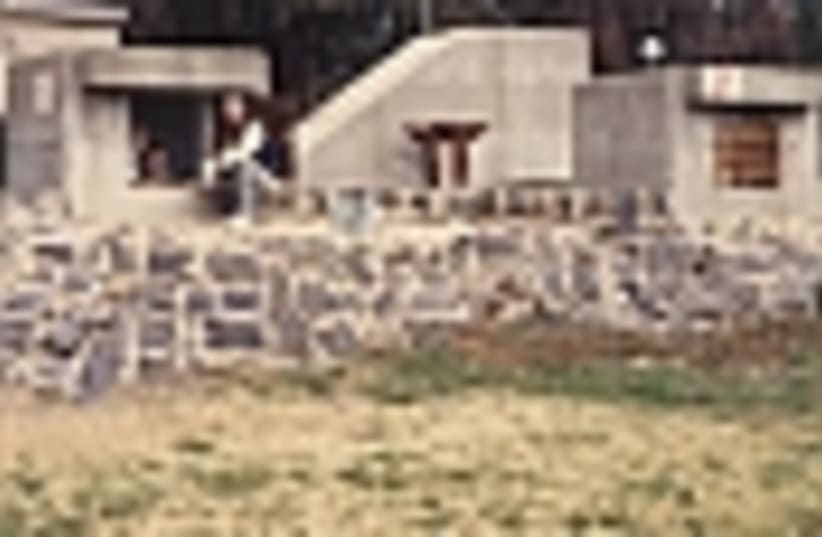What will our grandchildren say?
In 1948, I don't think our grandparents envisioned us renovating bomb shelters in 2009.
In January the Jewish Agency renovated some 300 bomb shelters in the south of Israel. With the increased range of rockets from Gaza hitting Ashdod and Beersheva - the first time these cities came under rocket attack since the 1948 War of Independence - it was time for some renovation.
Visit these just-refurbished bomb shelters or watch kids as they practice taking cover in them, it gives one a sense of déjà vu. Today the Jewish Agency is able to provide color TV and air conditioners in the bomb shelters, an improvement over a transistor radio and a fan. But a bomb shelter is still a bomb shelter and a rocket still a rocket.
Which makes me wonder, as Israel celebrates its 61st year of Independence, what would my grandfather, Joseph Meyerhoff, think if he saw Israel now?
As he sat huddled with David Ben Gurion in 1950 contemplating how to get urgently needed capital into Israel and subsequently started the Israel Bonds, my grandfather wouldn't have imagined driving today north of Tel Aviv to Israel's hi-tech hub, or inside Intel's micro-processing factory in Kiryat Gat. He wouldn't have imagined Israel boasting of 4,000 high-tech companies and more than 100 venture-capital funds. And, alongside this boom, that there would be a growing socio-economic divide and an unprecedented number of children living in poverty. It would also have been hard to think of the Jewish Agency partnering with Cisco to offer a three-year course, giving high school students in underprivileged areas a computer technician's certificate so they can make their way into technical units in the army.
Today, instead of kibbutzim and development towns built by the Jewish Agency during our grandparents' heyday in the '50 and '60, we are founding young communities built by college students in socio-economically challenged areas of Israel; when they aren't studying, members of these young communities are mentoring at-risk youth, volunteering at the local council and are involved in projects to improve the area. These students call themselves the Zionist pioneers of the 21st century.
Would our grandparents have imagined that Jews would continue to make aliya in 2009 from countries as diverse as Germany, Georgia and Yemen? Would they have imagined the busloads and planeloads of Jewish youth from all over the world coming to Israel on birthright or to study for a year on a Masa program?
Finally, if Israel were to make it to its seventh decade, my grandfather's generation would have assumed there would be quiet, if not peace, and that Israel would not at once be facing home-made Kassam rockets from Gaza and a nuclear threat from Iran.
I don't think they would have envisioned us renovating bomb shelters in 2009.
BUT the really interesting question is what will Israel look like in 60 years from now, when our grandchildren are where we are today? That's the unwritten part of the story; that's the part we are writing today.
It's easy to lose sight of this amidst our daily lives, personal and communal turbulence, especially during these times of economic challenge.
But if we keep on course, especially when it is difficult, then, come Israel's 120th Independence Day, our grandchildren will look back with pride on what we did, as we look back on the generation that founded the State.
The writer is Chairman of the Board of Governors of the Jewish Agency for Israel.
if(catID != 151){
var cont = `Take Israel home with the new
Jerusalem Post Store
Shop now >>
`;
document.getElementById("linkPremium").innerHTML = cont;
var divWithLink = document.getElementById("premium-link");
if(divWithLink !== null && divWithLink !== 'undefined')
{
divWithLink.style.border = "solid 1px #cb0f3e";
divWithLink.style.textAlign = "center";
divWithLink.style.marginBottom = "40px";
divWithLink.style.marginTop = "40px";
divWithLink.style.width = "728px";
divWithLink.style.backgroundColor = "#3c4860";
divWithLink.style.color = "#ffffff";
}
}
(function (v, i){
});

